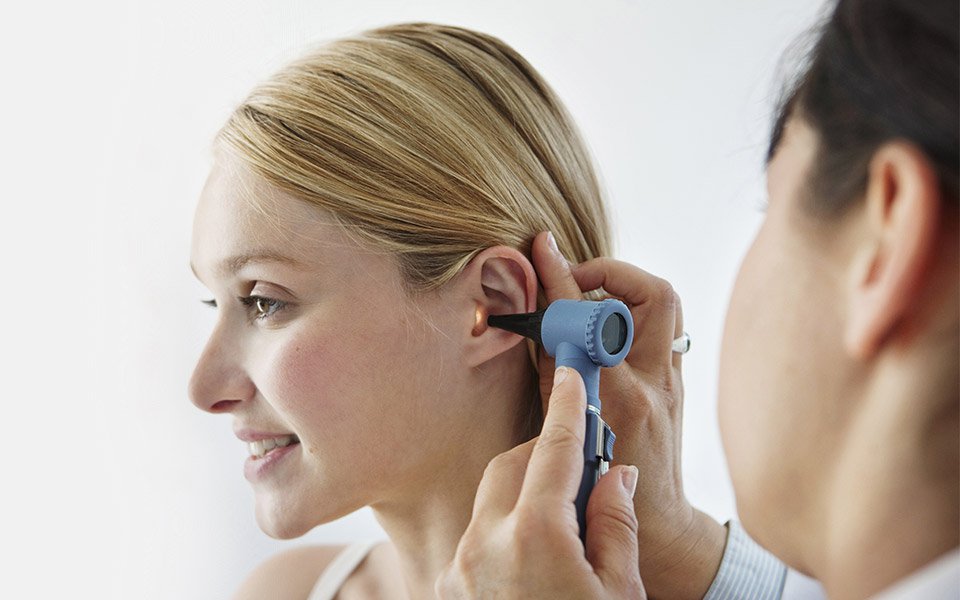
Ear Health Hub
Prevention is better than cure and we have simple tips to maintain your ear health. If, however, you are experiencing hearing loss or ear pain, it’s time to see an audiologist. Our Hidden Hearing audiologists are available at 85 locations around Ireland, so book in for a FREE screening or hearing test.
Burst Eardrum
A perforated eardrum can be caused by various factors, including ear infections, trauma, and exposure to loud noise. Having a burst eardrum can be a painful and uncomfortable experience but there are some treatment options available.
Burst Eardrum
Ear Cleaning
Earwax is a vital bodily fluid that lubricates the ear canal and protects the tiny hairs that enable us to hear. However, an excess of earwax can cause problems, including hearing loss.
Ear Cleaning
Ear Infection
Ear infections are very common and more so in children and there can be many different types. Sometimes ear infections will resolve themselves however if your symptoms are bothersome or do not improve after 3 days, we would advise you to visit your GP.
Ear Infection
Earwax
Earwax is a naturally occurring substance in the ear canal. Earwax assists in the cleaning and lubrication of the ear canal. Some people suffer from excessive earwax, and this can be managed by the use of drops or irrigation. Wax can cause hearing loss, and can interfere with the use of a hearing aid.
Earwax
Eustachian Tube Dysfunction
The Eustachian tubes are the openings that connect the middle ear with the cavities in the sinuses. If a eustachian tube opens wider than it should, it can cause the person suffering from the condition to hear unusual sounds; for instance hearing their own voice too loudly or even hearing their own breathing.
Eustachian Tube Dysfunction
Fluid in the Ear
Fluid in the ear is a condition in which there is an excessive build-up of fluid in the middle ear. It can occur in one or both ears and can affect people of all ages. Often fluid in the ear is not a severe condition, but it can cause discomfort and reduce hearing ability.
Fluid in the ear
Glue Ear
We hear when, sound waves travel through the outer ear, the vibration impacts on the eardrum which in turn motions the middle ear bones to transmit the vibration to the inner ear.
Itchy Ears
Itchy ears can be caused by many factors from a build-up of earwax to an ear infection. They may cause mild to moderate discomfort but they are usually not too serious.
Itchy Ears
Labyrinthitis
Labyrinthitis occurs when there is inflammation in the inner ear labyrinth, which is responsible for hearing and balance. If the labyrinth becomes inflamed, it causes dizziness, hearing loss, nausea and vertigo.
Labyrinthitis
Menieres Disease
Menieres disease is a condition of the inner-ear that causes a type of dizziness that makes you feel like you are spinning. It can also cause you to experience tinnitus, hearing loss, nausea and pressure inside your ear. It typically affects only one ear.
Menieres Disease
Otosclerosis
Otosclerosis is a disorder that occurs due to the abnormal growth of bone tissue in the middle ear. This growth leads to the immobilization of the stapes bone, reducing its ability to transmit sound vibrations to the inner ear.
Otosclerosis
Presbycusis
Presbycusis, or age-related hearing loss, is a form of hearing impairment that occurs gradually over time. It is caused by various factors, including genetics, lifestyle, environmental pollutants, and noise exposure.
Presbycusis
Pulsatile Tinnitus
Pulsatile tinnitus is a type of tinnitus characterised by rhythmic, whooshing, or pulsating sounds that are in sync with the person's heartbeat. The noise can be heard in one or both ears and can range from barely noticeable to incredibly loud and disruptive.
Swimmer's Ear
Swimmer’s ear, or to give it its medical name, otitis externa, is a common infection in the ear canal. That’s the tube that runs from the outside of your ear to the eardrum. It’s usually caused by water-loving bacteria or sometimes by a virus or fungus.
Swimmer's Ear
